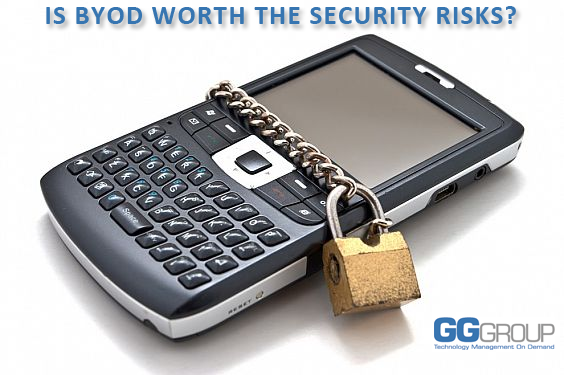
Without proper planning and management, BYOD will stand for 'Bring Your Own Doomsday'
If you're familiar with the ever evolving IT and managed services landscape, chances are you've heard about 'Bring Your Own Device' policies. It's a popular trend in the business world for many reasons, such as increasing productivity and lowering the IT budget overhead. Gartner reports that 2016 will see 38 percent of businesses no longer supplying their employees with devices such as laptops and smartphones. Even if you don't want to be onboard with BYOD policies, you may be pressed into it if your employer feels the cost saving measures are worth it. Before jumping head-first into the world of BYOD, you need to consider your data security, how to pick out the best equipment for your working needs, and what restrictions are in place over personal equipment.
Data Security
When you use your smartphone extensively in other aspects of your life, you end up with a lot of personal information and data on it. If you have to use the business network while at work, you're opening up your device to the same security threats that affect your network. Some companies have nothing in place to account for this, while others use virtualization and mobile device management software to manage the risks. Click here to take a look at one of these solutions offered by BlackBerry.
Mondaq also brings up some significant legal considerations, such as the property rights for information contained on your devices, and liability if something happens to your device while you use it for work purposes. Talk to your IT department to find out what policies are in place for your protection. You don't want to end up losing a device because a business app wiped out your entire memory.
Device Selection
BYOD does not always mean whatever device you want to bring. Infrastructure and network considerations may cause your employer to limit you on the devices you have to choose from. The applications and software used in day-to-day operations are also a factor, since the device needs to be powerful enough to handle necessary work functions. Find out whether you need to pick up a specific device, upgrade to a certain operating system, or meet hardware requirements for your devices. You don't want to drop a significant amount of money on a laptop just to find out it's nowhere near what your bosses wanted you to pick up, says ZDnet.
Allowable Software
Some companies employing BYOD policies have a list of approved apps for smartphones and tablets that have to be used for work. You don't want to use an unapproved app and get chewed out about it later, so ask about the existence of an enterprise app store and allowable applications. If the IT department sets up devices such as laptops, make sure they don't wipe out your entire hard drive with a disk image. It may be easier for the IT guys to provision your laptop with all of the necessary software by wiping everything, but you want to keep everything safe while still using a familiar piece of hardware.
Given the nature of BYOD environments, processes and freedoms are constantly changing. What may have made sense two months ago could be considered a serious security threat today. Staying on top of best practices and new threats is a full time effort that requires dedicated attention. Watch this quick 60 Second Lesson about Mobile Device Management and call GGGroup at 646-467-9630 to learn about how BYOD fits in to your business setting. {youtube}vRlqfLnWTII|610|343{/youtube}
By: Alex Yakubov & Tiffani Weston
